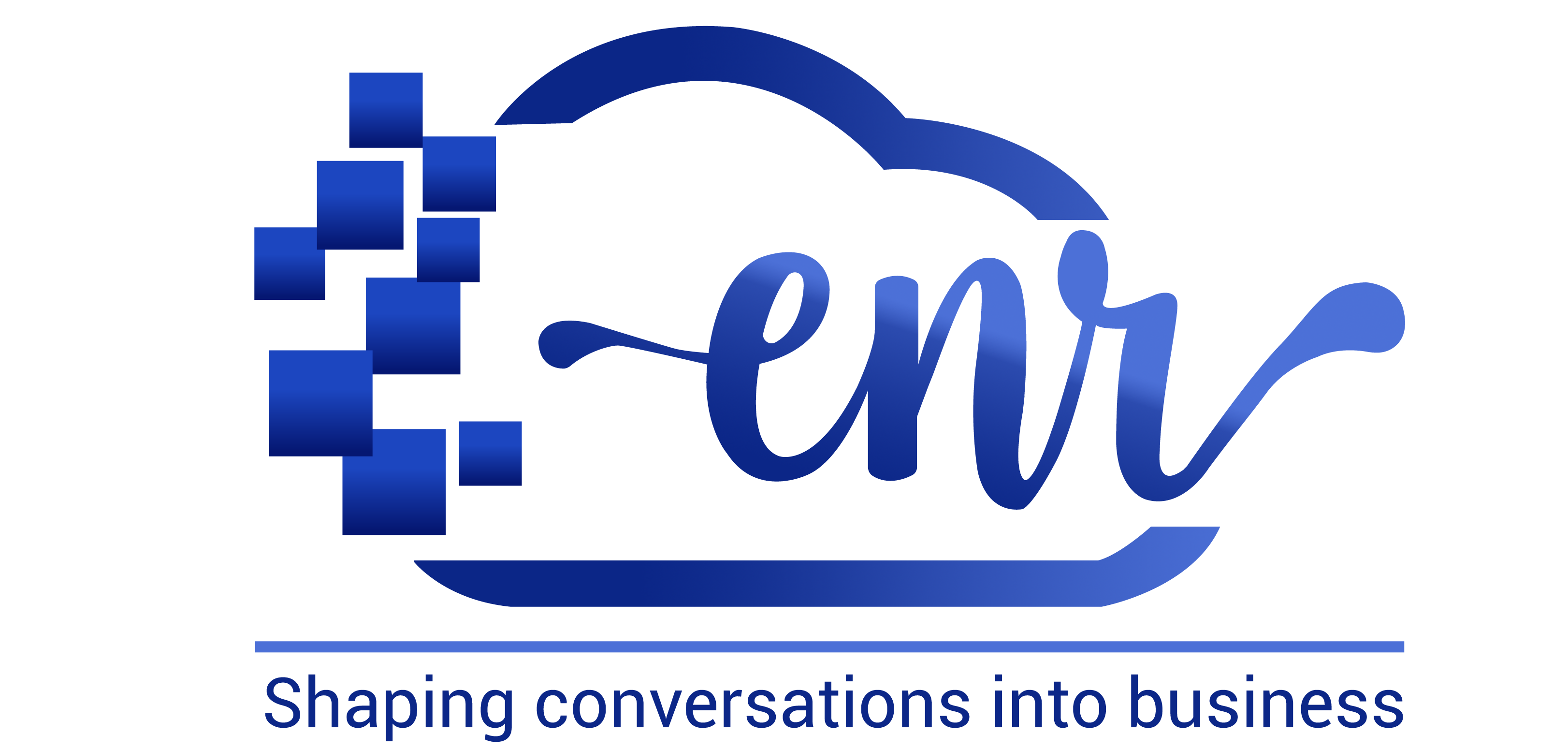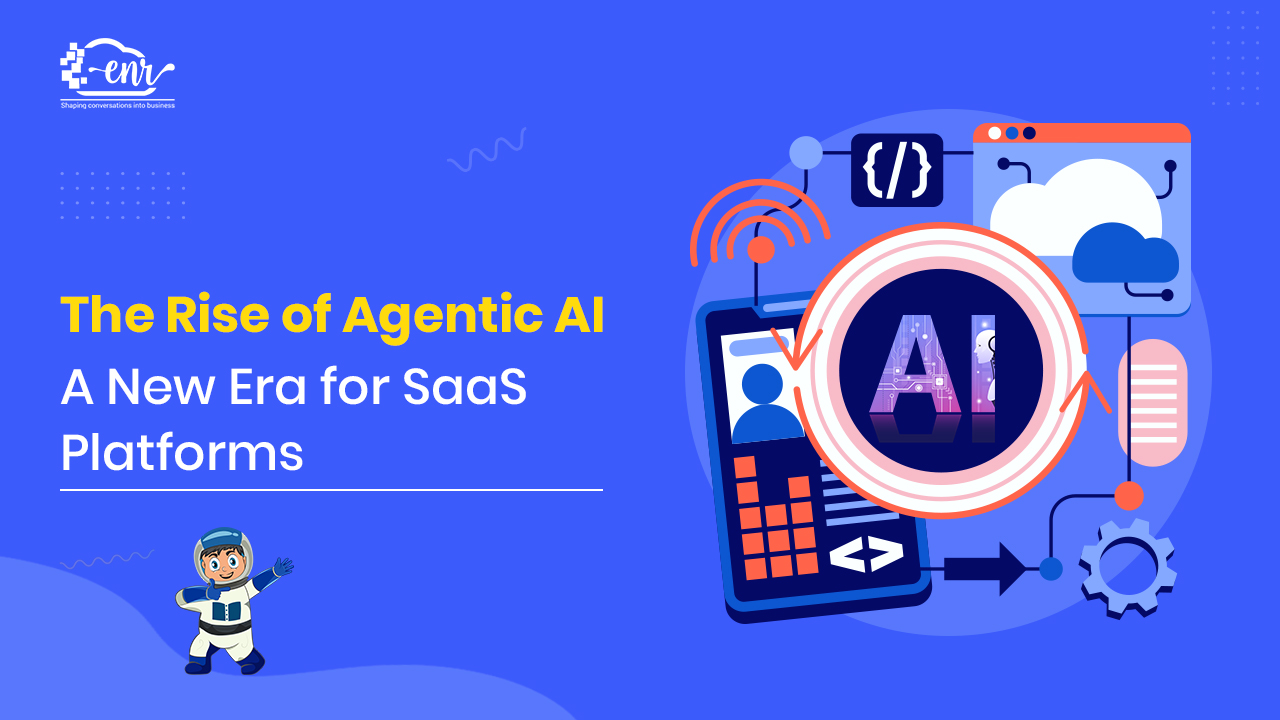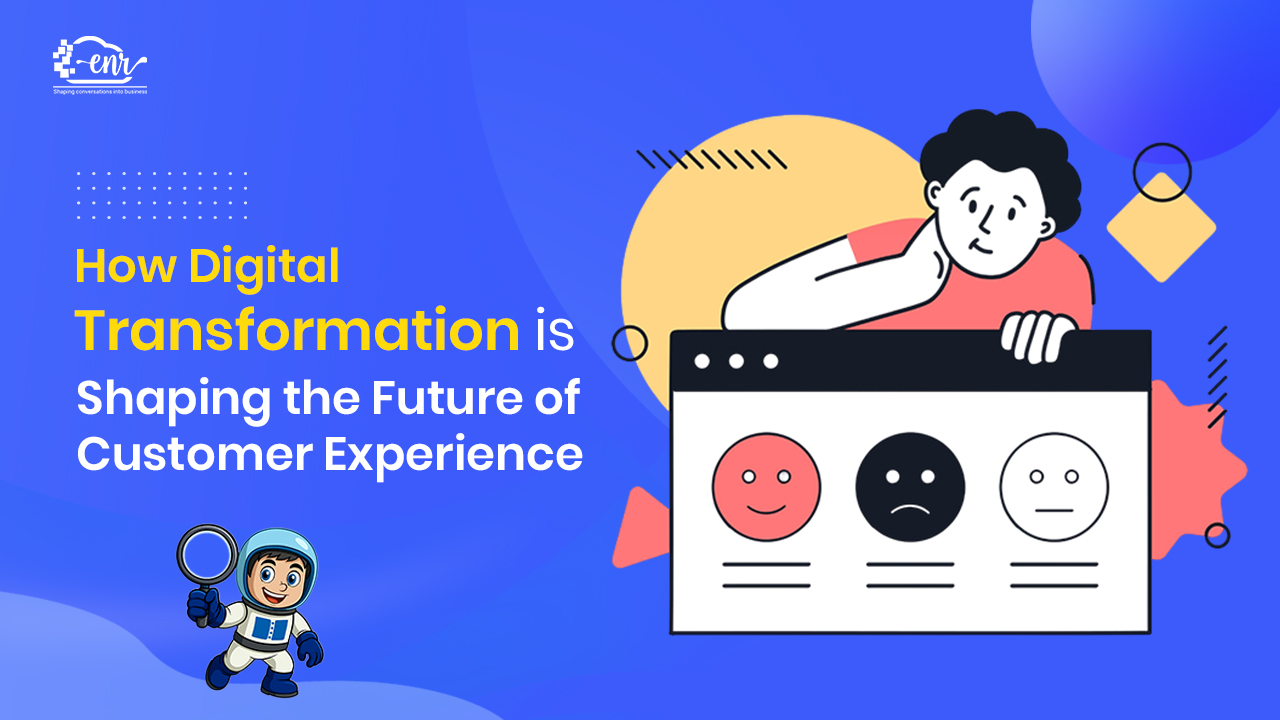Table of Contents
ToggleIntroduction
Nvidia’s CEO Jensen Huang once said, “Software ate the world, and now AI is eating software.”
The world of technology is on a forever evolving path. A few years ago, we got Software as a Service (SaaS) platforms that transformed the way business operated. It offered scalable, cloud-based solutions, and empowered organizations with advanced customer relationship management, project management, and data analytics that revolutionized how business was conceived. SaaS platforms are on the verge of another radical transformation with the rise of Agentic AI. It is the type of AI that plans, executes, and optimizes tasks on it is own without human interventions.Â
This new era of technology is disrupting the SaaS platform by virtue of its game-changing features of acting autonomously and adapting dynamically to business needs. This paradigm shift has made the SaaS platforms sit up and take notice and redefine how they function. In this article, we will talk about how agentic AI is disrupting SaaS industries, its impact on businesses, and the challenges and opportunities it brings for industries worldwide.Â
Why is SaaS on the Backfoot?
SaaS is software for humans to work on. It is developed based on the set requirements but needs to be operated by humans. Hence, the investors who now know about agentic AI are asking some pertinent questions such as: Can AI take over the entire workflows that require multiple SaaS apps and human users, or instead of software, it is possible to buy the outcomes delivered by AI?Â
What is Agentic AI?

Agentic AI is the latest development in the world of AI. These are autonomous AI agents that can perform a task from start to finish without constant human supervision or intervention. AI agents reduce workloads, simplify processes, and recommend the best way to get more out of less. AI agents are a combination ofÂ
NLP which understands and responds to human commands.
Machine learning, which improves by past learnings.
Generative AI helps with content creation, code writing, and complex problem-solving.
Reinforcement Learning performs dynamic decision optimization and adapts to real-time changes.
Automation and workflow orchestration bring multiple SaaS tools on one platform and streamline the business processes.Â
From a business point of view AI Agents work as digital assistants that understand their language and prompts and work with the teams to boost efficiency and improve customer relationships.Â
What Makes Agentic AI so Powerful?
- They can Take Actions and Complex Decisions with Minimal Human Input.
- Initiate workflows based on past interactions.
- Improve processes autonomously and becomes smarter with more work it does.
- Anticipates User or Business Needs even before they realize them.
- Drive user engagement.Â
- Reduce training and updation times.Â
- Boost-decision making by providing custom insights.
- It can detect security threads in real time and also fight them off.
- Greatly reduces operating costs and improves SaaS platform reliability.
SaaS is the Tool that humans can use, whereas Agentic AI is a tool that performs the work. AI gives results and is reshaping how software is built and delivered. Organizations are looking to leverage AI to optimize their businesses.Â
Drawback for SaaS that gives Agentic AI the Edge
SaaS has been in use for more than a decade but works on per-seat licensing.
Underutilized SaaS has Become a Major Issue.Â
Every work Needs a Different SaaS License.
Data silos and integration, as different SaaS apps often don’t collaborate and a lot of time is wasted trying to stitch together the data.
Key ways Agentic AI is Disrupting SaaS Platform
One Software Does More Work
Agentic AI can handle the task of 10 people using 10 different apps at the same time. Fewer operators mean fewer SaaS Licenses need to be bought, cutting down costs and reducing the chance of human errors. This has been a direct hit on the SaaS revenue model.Â
Automation at an Unprecedented Scale: Just set it and forget it
AI assistants don’t need constant instructions; they can execute a chain of thought seamlessly even if they involve complex orchestration and collaboration in different systems and processes and also do the analysis simultaneously.
SaaS Platforms Offer Automation too but not at the Scale of AI Agents who
- Can predict and actÂ
- Adapt and LearnÂ
- Execute Multi-Step Actions
For example, a sales automation SaaS combines with Agentic AI to find potential leads, personalize email marketing, schedule follow-ups, and trigger automated contract approvals.Â
Hyper Personalisation of SaaS User ExperiencesÂ
Agentic AI tools provide real-time and adaptive personalization to make the SaaS interface feel hyper-personal and intuitive. Traditional SaaS has a preset dashboard and interfaces with a one-size-fits-all approach.
AI agents, on The Other Hand:
- Learn from user behavior and customize data views with dynamic dashboards.Â
- Provide recommendations based on past interactions.
- Deliver Contextual Assistance for Complex Tasks.
- Reassign work to Balance Workloads.
- Provide real-time and live progress reports to the team members based on their roles.
AI powered Self-Healing SaaS PlatformsÂ
AI agents are intelligent, and they predict and resolve issues as soon as they arise. Unlike traditional SaaS platforms that need regular troubleshooting, bug detections, and manual monitoring, Agentic AI
- Auto detects bugs and inefficienciesÂ
- Self-correct configuration issuesÂ
- Averts downtime by using predictive analysisÂ
- Update automatically and install patches
- Alert the IT team for risks that it cannot solveÂ
- Content and Code Generation using Agentic AI
Agentic AI generates high-quality contents, codes, designs autonomously, and if the user wants some changes, they can be done with just a simple common. SaaS on the other hand needs manual intervention in marketing, coding, and designing for changes and incorporations. The agentic AI can
- Generate Complex Scripts and Debug the Errors Automatically
- Suggest Improvements in Content and Codes for Optimization
- Grasp User Intent and Formulate Custom Workflows
- Customer Support with AI agents
Traditional SaaS platforms rely on predesigned chatbots and ticketing systems to resolve customer issues, which is often time-consuming and inaccurate. Agentic AIs have transformed customer service by:Â
Providing multilingual support effortlessly
Easily handling complex multi-step issues without human escalation
Interact with customers on various platforms such as email, chat, voice, and social media seamlessly
Process refundsÂ
Personalize the interactionsÂ
Is SaaS Platform now a thing of the Past?
No, it is evolving, and AI-first platforms are the new SaaS. Hybrid software solutions that take the best of Agentic AIs and SaaS platforms are the future. This will give rise to smarter, autonomous, but still easy to use platforms that can easily push your business ahead of the competition without heavy costs.Â
Conclusion
SaaS platforms and Agentic AI are competing and complementing at the same time. Agentic AI has redefined many aspects of the industry, including the ways SaaS platforms operate. The shift is from a labour-first approach to results-first approach with personalization and boosted efficiency. SaaS vendors can use this opportunity to leverage the intelligence of AI agents to augment the specialized strengths of SaaS platforms. Though this transition will be disruptive at first, it will be beneficial for the years to come. By using AI agents SaaS can produce customizable and secure tools and avoid software that don’t have customer value.Â
Read Also: 35 Powerful ChatGPT Prompts for Writing High-Converting Emails
Written By – Amit Bhateja
Amit Bhateja is the co-founder of enrcloud and helping brands and Unicorns from the last 15+ years and overachieve their Engagement and Retention goals. He is passionate about solving customer problems with modern technology, new age solutions, and consultancy approach. Besides Building ENR, He enjoys reading books, spending time with his family and Teammates, traveling, meeting new people, learning new things, and love to close the business deals.





